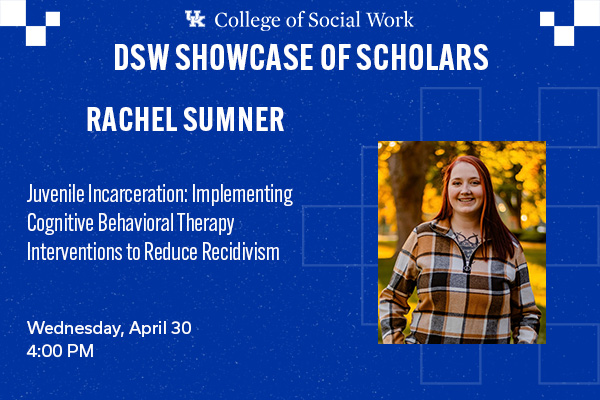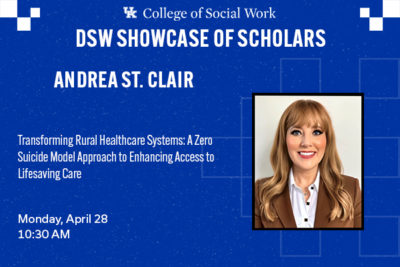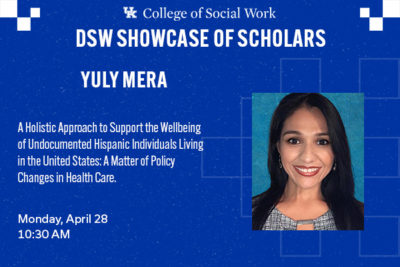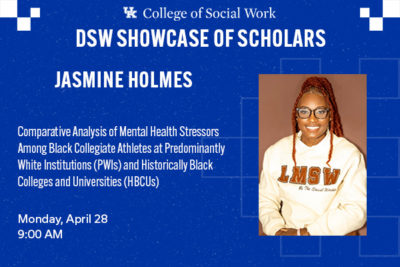DSW Candidate – Rachel Sumner, 4:00 PM-5:15 PM
$0.00
Virtual Showcase of DSW Scholars 2025 Event!
Juvenile Incarceration: Implementing Cognitive Behavioral Therapy Interventions to Reduce Recidivism
DSW Candidate – Rachel Sumner, MSW
Wednesday, April 30, 2025
4:00 PM-5:15 PM Eastern Time Zone
Credit Hours: This session is not eligible for CE credit.
Description
Juvenile Incarceration: Implementing Cognitive Behavioral Therapy Interventions to Reduce Recidivism
The presentation, “Juvenile Incarceration: Implementing Cognitive Behavioral Therapy Interventions to Reduce Recidivism” will examine how implementing Cognitive Behavioral Therapy into juvenile programs can reduce juvenile recidivism, ultimately leading to a successful future in the community. Aftercare implementation, within facilities and once released, can greatly influence a juvenile’s chance of remaining a positive asset within their community. The systematic literature review describes the gaps in literature surrounding CBT implementation within juvenile facilities and their effectiveness.
The conceptual paper covers four theoretical frameworks directly relating how the incorporation of these theories can impact the effectiveness of CBT interventions. The practice application paper will provide a case study utilizing the CBT intervention and how this implementation positively influenced a juveniles’ life once released. With this societal issue in mind, the need to focus on juveniles’ well-being and treatment within juvenile detention can raise awareness as well as change policies within the state of West Virginia.
Learning Objectives:
Upon completion of this conference, participants will be able to:
- Learn the research limitations surrounding CBT implementation to reduce juvenile recidivism.
- Learn the theories connected to be incorporated into CBT programming.
- Describe a case study surrounding how CBT implementation can directly impact a juvenile’s chance at reducing recidivism risks.
Delivery Method: Live Interactive Training via Zoom Video Conferencing
Credit Hours: This session is not eligible for CE credit.
Target Audience: This conference is intended for social workers and students.
Accreditation: University of Kentucky College of Social Work, Provider # 1377, is approved as an ACE provider to offer social work continuing education by the Association of Social Work Boards (ASWB) Approved Continuing Education (ACE) program. Regulatory boards are the final authority on courses accepted for continuing education credit. ACE provider approval period: 9/29/22-9/29/25. Social workers participating in this conference will receive up to 15 general continuing education credits.
Claiming CE Credit: Instructions for claiming CE credit will be disseminated at the beginning of each session.
Questions: If you have any questions regarding CE credit or to report a grievance, please contact Christina Krantz at Christina.Krantz@uky.edu. For technical assistance, please contact lmshelp@uky.edu.
Disclaimer: The views and opinions expressed in these presentations are those of the individual presenters and do not necessarily reflect the official policies or positions of the University of Kentucky or the College of Social Work. The inclusion of any topics, perspectives, or discussions is intended for academic engagement and does not constitute endorsement by the institution.



